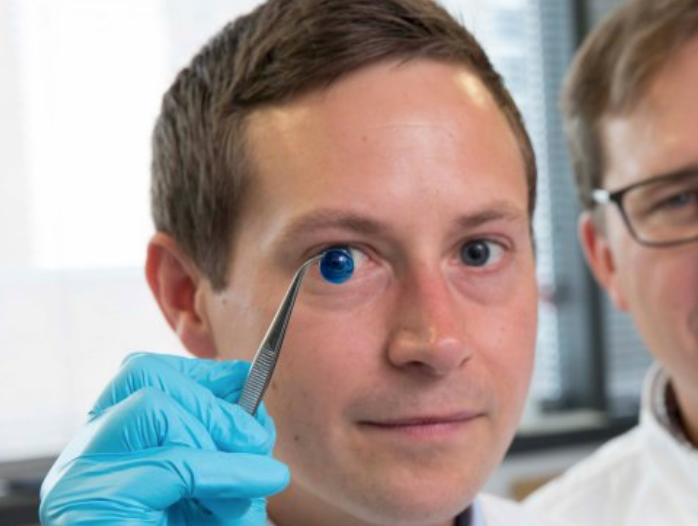Newcastle University’s Che Connon has developed proof-of-concept research that could lead to a 3D printed cornea.
Stem cells from a healthy donor cornea were mixed with alginate and collagen to create a printable bio-ink. A 3D printer extruded the bio-ink in concentric circles to form the shape of a human cornea in less then 10 minutes. The stem cells then grew.
According to Connon: “Our unique gel – a combination of alginate and collagen – keeps the stem cells alive whilst producing a material which is stiff enough to hold its shape but soft enough to be squeezed out the nozzle of a 3D printer. This builds upon our previous work in which we kept cells alive for weeks at room temperature within a similar hydrogel. Now we have a ready to use bio-ink containing stem cells allowing users to start printing tissues without having to worry about growing the cells separately.”
The team demonstrated that they could build a cornea to match a patient’s unique specifications, but said that it will be several years before this might be used for transplants.
Click to view Newcastle University video
Join ApplySci at the 9th Wearable Tech + Digital Health + Neurotech Boston conference on September 24, 2018 at the MIT Media Lab. Speakers include: Rudy Tanzi – Mary Lou Jepsen – George Church – Roz Picard – Nathan Intrator – Keith Johnson – Juan Enriquez – John Mattison – Roozbeh Ghaffari – Poppy Crum – Phillip Alvelda – Marom Bikson
REGISTRATION RATES INCREASE FRIDAY, JUNE 22nd
